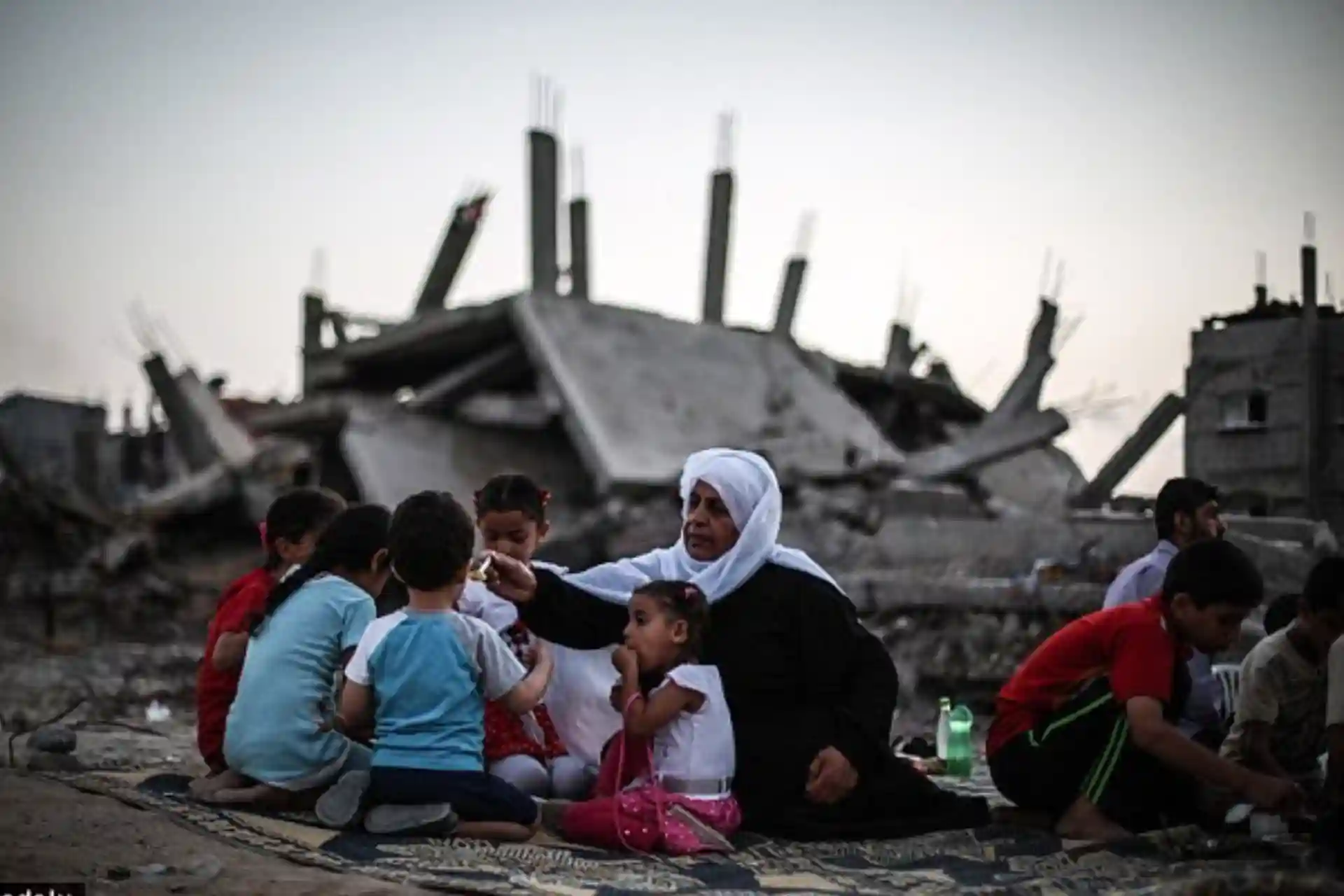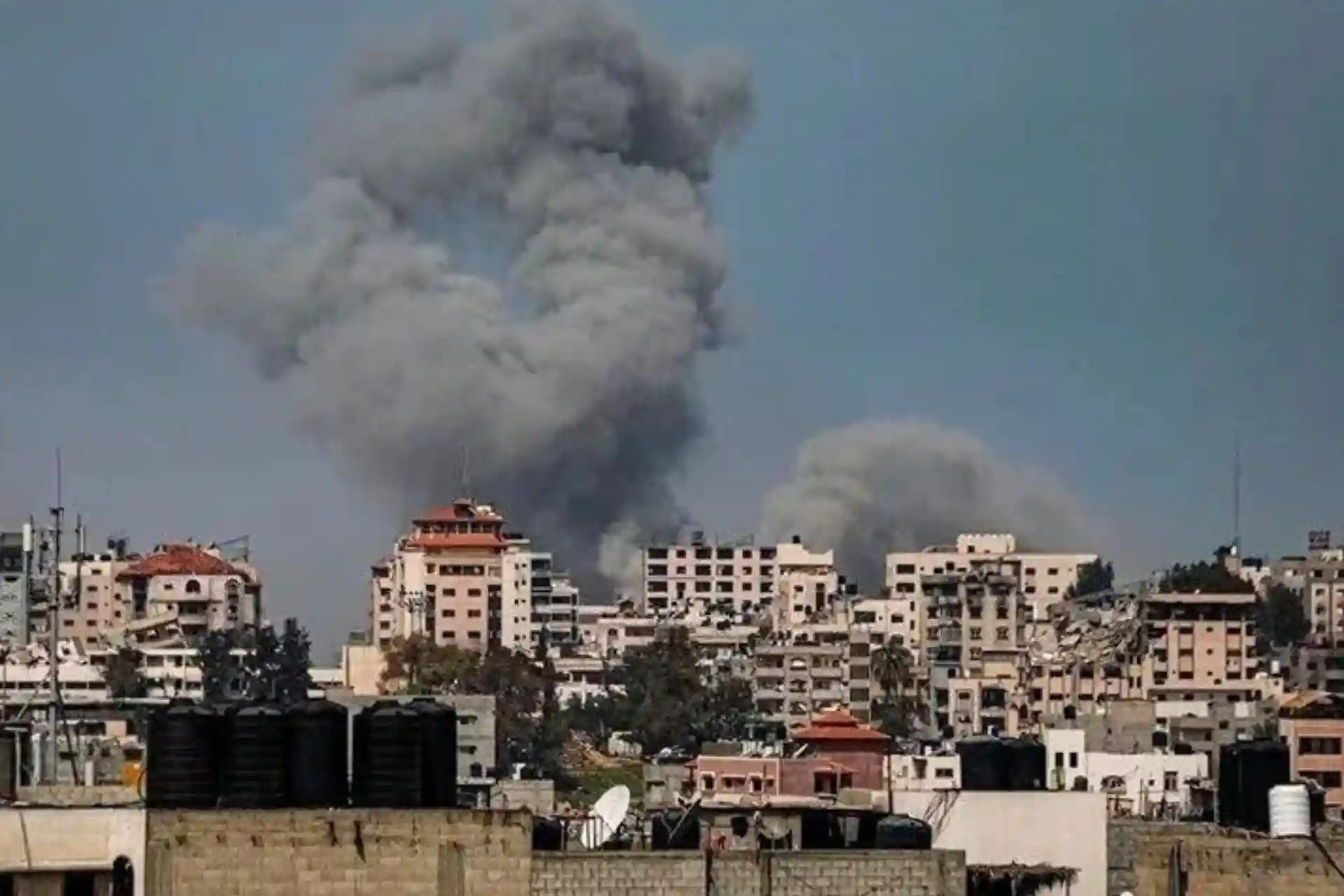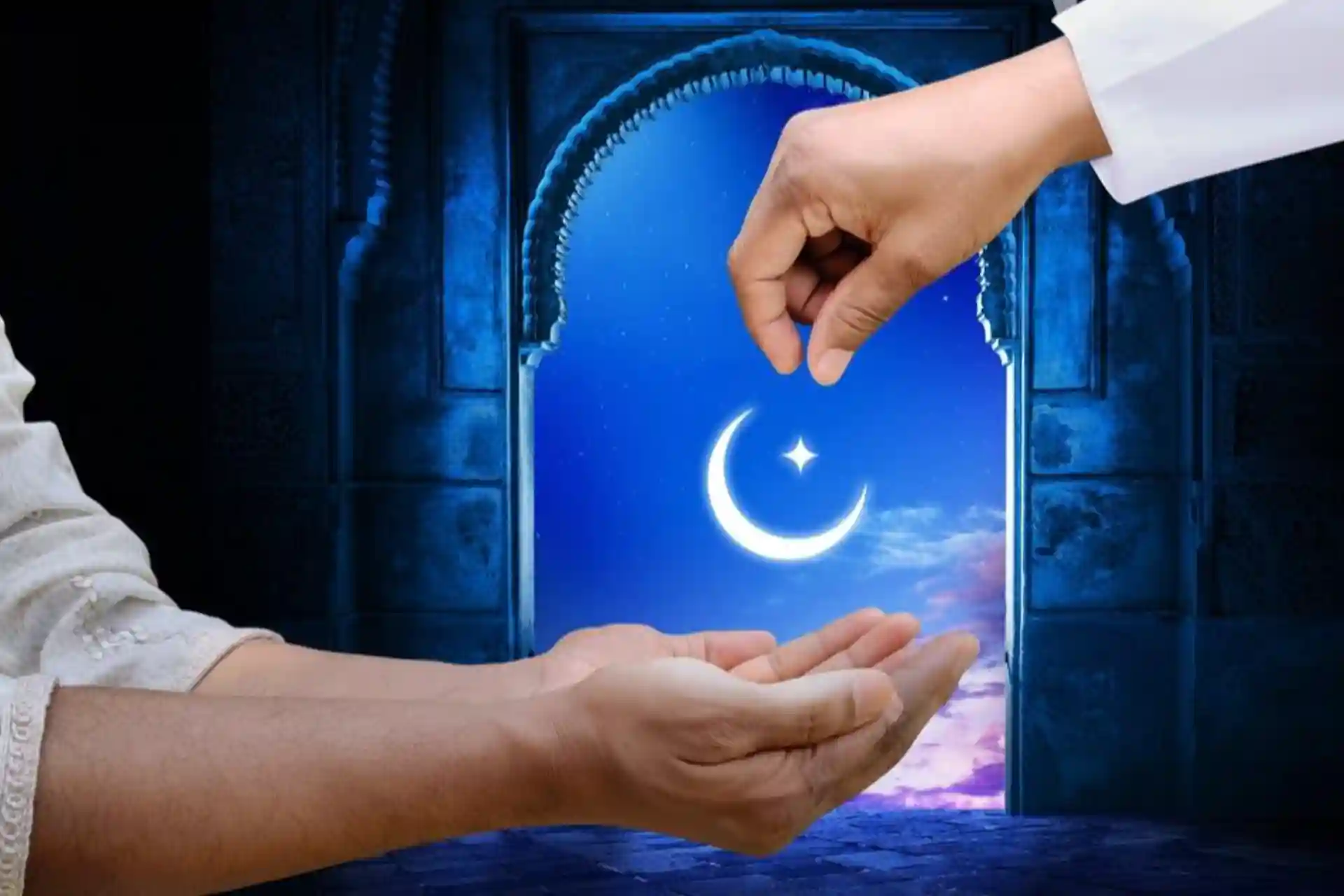Ramadan is about compassion - why are the people of Gaza hungry and alone?
While the Muslim world gathers around the Suhoor and Iftar tables, Palestinians in Gaza are fasting in unison - Israel has cut off their food, water and electricity supplies. Silence during the month of compassion is also complicity in guilt.
For ten days now, Gaza has been on the brink of starvation. Ten days ago, aid convoys were stopped at the border, while Israeli officials smiled in front of cameras and said that "the siege has been tightened." For ten days, mothers have been boiling leaves to break their fast, babies have been thirsty for a drop of milk, and hospital shelves have been empty of painkillers, insulin, and hope. And as if that weren't enough, the enemy has dealt the final blow: the electricity has been cut off.
Israeli Energy Minister Eli Cohen announced it openly and proudly: Gaza will no longer receive electricity. The last remaining Kissufim line has also been cut off. Two UNICEF-funded desalination plants in Deir al-Balah and Khan Yunis, which provide water to 700,000 people, have been shut down. What is the reason given for this? "To return the hostages." In reality, this is the destruction of Gaza, the destruction of life, the destruction of one basic need at a time: the destruction of the human race.
No electricity means no clean water. No functioning hospitals. No ventilators. No life.
This policy is not new to Israel. Until October 7, Israel supplied Gaza with only half of its electricity - ten transmission lines, each of which resembled a makeshift ribbon.
After October 7, the main line was also cut off. By the end of 2024, under strong international pressure, one, and only one, was reconnected with protest. Now, with the push of a button, that lifeline has been cut off again.
Collective punishment is a term the world uses when it happens elsewhere. In Gaza, it is policy. In legal parlance, it is a systematic effort to create "conditions of life that will lead to the physical destruction of a population."
The International Court of Justice (ICJ) has clearly warned against this. Yet Israel has done it deliberately. This is the same crime that Netanyahu was accused of years ago, the same crime that Ursula von der Leyen condemned when Russia committed it. Only now this Israeli crime is having even more tragic consequences and is going completely unpunished.
Yet, for the enemy, there are no consequences for their actions. No sanctions are applied. No arms embargo is imposed. The perpetrators of these horrific events sit in parliaments and press offices, continuing to condemn war crimes elsewhere while continuing to fund them here.
Meanwhile, darkness and despair are spreading...
But the darkness was not limited to Gaza. It reached New York. There, Mahmoud Khalil, a Palestinian graduate student at Columbia University and holder of a US green card, was abducted by agents of the Department of Homeland Security. He was arrested without a warrant. There was no due process. No crime had been committed, he was simply punished for speaking out against the mass murder of his fellow Palestinians.
When his lawyer demanded a good reason, the agents were baffled. But first they revoked his visa. Then, when they learned he was a permanent resident with a green card, they took him away too. They said it as casually as if he had misplaced a file. With his eight-month-pregnant wife at home, he was being threatened with arrest and deportation.
Mahmoud's lawyer said they don't know where he is. They were told he was being held at an ICE facility in Elizabeth, New Jersey. But when his wife went to see him, they were told he wasn't there.
This is how it all happens. First, they take away those who spoke out against the genocide, then those who spoke out against the regime, and finally anyone who spoke out at all. How long will this continue until Muslims realize this, until they wake up to reality? When will they care? When will they realize that they could be the next victim?
In Gaza, a sniper counts each victim he kills as if he were counting points in a game. "I stopped counting after two hundred," he admits. "I stopped at four hundred," says another soldier from a nearby village. When asked about children, they bite their lip. Then they sigh. Then the inevitable answer: "Yes, there were children."
This is not a fabric. This is not a war movie script. This is a confession made by former Haaretz journalist Nati Efet. This is a public admission of genocide.
17,400 Palestinian children were killed.
17,000 Palestinian children were orphaned.
Gaza is now home to the largest number of amputees in the world relative to population.
Yet, despite all the suffering, the strategic brutality, the fact that Israel determines with night vision goggles who lives and who dies, the world continues to watch in silence. The hands that sign arms deals talk nonsense about human rights. The mouths that condemn genocide in textbooks bite the wax while it is actually happening.
A six-year-old girl sleeps peacefully in a tent in northern Gaza. A drone is circling the sky for no apparent reason. At 11:00 p.m., an Israeli drone fires a shot into her face. The bullet shatters the girl's skull, causing bleeding in her brain and crushing the bones behind her left eye. There has been no military action in the area. No warning, no reason given. Just the cold-blooded execution of a child.
His family doesn't know why he was attacked. The doctor doesn't understand why he was attacked either. But we do.
Al Jazeera's Hind Khodari reports from Gaza City, where she spoke with Dr. Christopher Holden, who said working conditions for medical workers in Gaza are deteriorating.
This is not just about Gaza. This is about a fraudulent regime that protects total impunity. This is about an empire that suppresses dissent not just in the slums of Rafah but in the classrooms of New York. This is about a world that has perfected the art of hypocrisy.
And for those who are still asking questions, who still pretend they don't understand - "why should Israel itself provide electricity to Gaza?"
Israel does not provide Gaza with electricity. It uses it. It weapons it. It bombed Gaza's only power plant in 2008. And again in 2014. When there were attempts to rebuild it, Israel ensured that the necessary supplies never entered.
The question is not why Gaza doesn't generate its own electricity. The question is why Israel worked for years to make sure Gaza never could.
It is the holy month of Ramadan. In Cairo, Riyadh, Dubai, tables are set with feasts. Gold-rimmed plates are filled with mutton and saffron rice, dates so large they shimmer and shimmer in the chandelier light. Families are gathered, their hands raised in prayer, their voices high and low, their thanksgivings.
Ramadan is a month of compassion, a time to remember that there are poor people in the world who need help. It is meant to teach patience, discipline, and generosity. But while Gaza suffers from hunger, babies are emaciated, their flesh stripped from their bones, and the few remaining bakeries are bombed into ashes, the world of plenty looks on indifferently.
A million Palestinians are fasting without suhoor. They have no time to open their mouths at iftar. They are not feasting, but scavenging for survival. They are praying in mourning, not in peace. The same people who decorate their streets with lanterns and crescents, who talk about the sanctity of Ramadan, who boast about their generosity and kindness, are now watching indifferently as Israel ensures that Gaza will not make it to the next Eid.
What is the lesson of this year's Ramadan? Have we forgotten the true meaning of piety and reduced it to a mere formality? Have we prayed, filled mosques, and donated our excess money to charity, but remained silent in the face of genocide?
The answer lies in the ruins of Gaza; in the bodies buried beneath them; in the babies who will not wake from their final sleep.
Ahmad Shihabiddin



